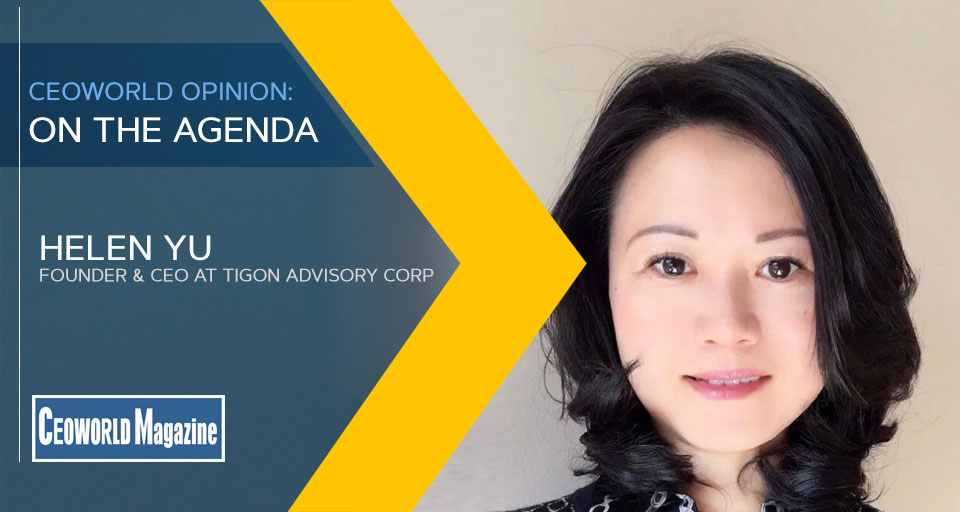How the Art of Listening Transforms the Customer Experience

- Making broad assumptions is risky for founders and their teams when investor dollars and many hours of hard work are at stake. Relationships grounded in trust are a necessity.
- Good listening skills – among team members and customers – set the tone for a two-way dialogue where each person feels valued and heard.
- The payoff: a culture where people get excited about work and a remarkable customer experience (CX) where people outperform expectations.
The art of listening then becomes the business tool of choice for founders wanting to make their mark. For start-ups, this skill fills a critical shortcoming I call the Process Disconnect, the method by which a start-up can establish process and practice to align strategy with execution while driving accountability.
At marketing automation software provider Marketo, for example, I helped pave the way for remarkable customer experiences by fixing the Process Disconnect.
When I joined Marketo, the service team didn’t get involved until an enterprise deal was closed. The resulting Process Disconnect created a challenging situation in which sales over-promised while service under-delivered. To solve this, I asked the question, “Why do we do it this way?” The response was that our services did not have savvy resources to support sales.
One of the best ways to remove an obstacle in your path is to listen to the people involved.
I met with ten enterprise customers consisting of CIOs and CMOs and asked them, “What does success look like to you?” Most CMOs said that they simply were not challenged by technology and that they struggled with marketing automation in general.
The enterprise customers wanted to understand better how they stood in relation to competitors and where to start their marketing process. To facilitate this, we built a marketing automation adoption roadmap based on customers’ maturity. With that roadmap, we created a Digital Marketing practice, getting CMOs’ buy-in during the sales cycle in more significant enterprise deals and helping them build a marketing automation blueprint during the onboarding process.
The customers also wanted to understand better how marketing automation fits into their overall architecture and how it affected security, user experience, infrastructure, and data flow. I realized that we needed team members with technical expertise beyond Marketo, experts in Salesforce, Adobe, and Microsoft Dynamic. To do this, we launched an Integration Practice.
Creating the Digital Marketing and Integration practices was not to increase service revenue but to increase our interaction with CMO/CIO/CTOs. And guess what? Our efforts expanded license deals and earned us our first million-dollar service deal!
Another outcome from listening to both CMOs and CIOs talk about their concerns was learning about their lack of knowledge around marketing automation. They viewed this knowledge gap as holding them back – and it definitely was keeping us from getting the deal. So we expanded our educational resources to include a renewable user training offering and added a certification program for partners and customers. As a result, people felt accomplished and confident, and they viewed Marketo as a trusted partner.
Customer experience is crucial to success in business, but we often forget that there are different types of customers we serve. Our employees, supervisors, and other leadership members are also “customers” for the work provided by you – they need your output and leadership to fulfill their part of the organization’s mission and vision.
Partnerships grow when you show you are committed, when you decide one day to set aside your priorities and really listen to the other person. This is the long game that many start-ups miss, resulting in tensions and avoidable mistakes that can cause delays in growth and business failure. Genuinely listening to your team and customers is a lengthy and committed process that elevates customer experience and fosters employee engagement. And, as my experience at Marketo illustrates, it can really pay off.
Listening Elevates Teamwork
Everyone is responsible for the customer experience (CX), and that starts within your company itself. The first thing you need to do is listen to your internal customers: your team.
Creating an atmosphere where employees feel safe and confident in expressing themselves is vital to creating a place where you get actionable feedback. If people feel like their experiences are not valued by their employees, they don’t bother giving them. This robs you of the information you need to make their work easier and, ultimately, more profitable for you.
Listen to your team and focus on quality interactions. Give customer-facing team members a deep understanding of the customer. Show them how to inspire confidence and understand customer challenges with tailored messages and approaches. Over-communicate every message so that your team’s experience will blossom out to external customers. Change the workflow if you have to, but strive to improve the communication process at every customer touchpoint. If you don’t have a communication protocol, build it now.
Understanding the Voice of Your Customer
Customers are loyal. They talk about their experience with others. If you’ve done it right, they feel understood, valued, and heard. They feel joy working with you, choosing you, buying your products, experiencing your services, and investing their time with you. There’s an emotional connection. They trust you.
To gain that trust and keep it, you must really listen to what customers have to say. Listening technology, social media monitoring, surveys, monitoring customer reviews, and market segmentation are all ways you can understand the voice of your customer. Nothing, however, beats an actual conversation. Build confidence through content that uses the customer’s language. Share notes from customer conversations across your sales and marketing team. Help your teams and team members learn from each other and enable one another to deliver a great customer experience.
Listening to the Process
If I were to start my start-up journey again, I would pack differently. I would add listening training into the mix and encourage sharing of customer feedback across the company. One of the biggest obstacles is not pausing, listening, learning, or reflecting.
Most people would agree that customer success starts with our understanding of the customer. So, whose job is this? The obvious answer is the customer success team. But pinning CX on one department is a limited worldview. The customer sees far more than what we show them. They see our values in one-on-one conversations. They learn about our mission through the causes we support. They experience our brand in our boards of directors’ decisions and whether they feel valued and heard. Are you making choices that embody the mission and vision and communicate the value of all of your customers, including your employees?
Customer experience is at the core of every successful company, and it is everyone’s responsibility. To ensure that CX is both positive and lasting, you must nurture effective two-way communications with both the customers and the teams within your own company.
Written by Helen Yu the founder and CEO of Tigon Advisory Corp.
Bring the best of the CEOWORLD magazine's global journalism to audiences in the United States and around the world. - Add CEOWORLD magazine to your Google News feed.
Follow CEOWORLD magazine headlines on: Google News, LinkedIn, Twitter, and Facebook.
Copyright 2025 The CEOWORLD magazine. All rights reserved. This material (and any extract from it) must not be copied, redistributed or placed on any website, without CEOWORLD magazine' prior written consent. For media queries, please contact: info@ceoworld.biz









